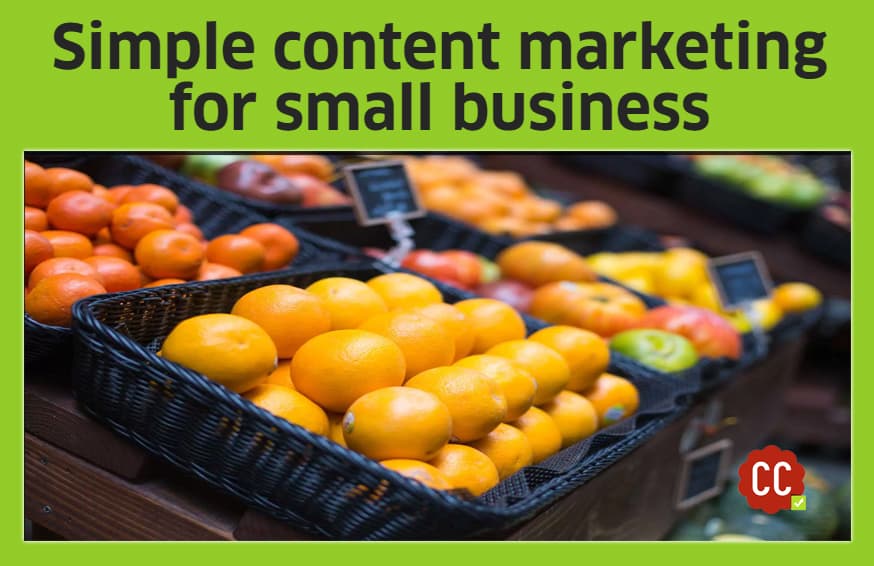Here is a nice article in the Forbes magazine that explains how as small business, especially as a start-up, you can use content marketing to grow a big business.
Even if you don’t believe in the various studies available on the Internet that prove that advertising no longer remains as effective as it used to be (it was never effective, there was no other alternative), use your personal experience.
How much attention do you pay to advertisements on the net, or even on TV? Given a chance, don’t you fast forward advertisements especially when you are watching your favorite program? Don’t you switch to the premium version of your mobile app so that you can get rid of the advertisements? I do.
On the Internet people devise various ways to avoid coming across ads. Millions of people have installed browser add-ons that let them block ads.
To be fair, advertising is a big business. Google has made billions selling ads through its search engine. Facebook is selling ads. Twitter is trying to sell ads. LinkedIn is constantly encouraging you to advertise on their platform. Ads are being sold on Instagram.
So, if advertising is so great, why you are being constantly told that you should embrace content marketing instead of conventional marketing and advertising?
The big difference is, advertising is about selling, content marketing is about building relationships.
Through advertising, people may come across your promotional message, buy from you or not, and then move on.
With content marketing, you are constantly in touch with your prospective customers and clients through providing them valuable content.
Advertising isn’t cheap, especially when you have many competitors who are doing well and are ready to spend more than you can.
Even if you want to promote your business using Google AdWords, you will need to bid on individual clicks based on how much your competitors are bidding.
Your business name and your brand are in front of your prospective customers and clients only till you advertise.
In advertising, “out of sight out of mind” prevails in its truest sense simply because there are scores of other businesses that are constantly vying for the attention of your customers and clients.
Content marketing on the other hand, leaves an imprint in the minds of your prospects. This is because instead of telling them to buy from you, you are giving them useful information that helps them work better, or sleep better, or entertain themselves better, or do something else better. You are enriching their lives.
When you enrich their lives, they remember you.
The author of the above Forbes article rightly says that content marketing is not about explicitly selling products or services, but getting everyone interested in what is being offered.
People these days want to make their own decisions, and this is why in-your-face marketing doesn’t work.
Building a big business out of a small business with content marketing
The biggest upside of content marketing is that it easily scales according to the size of your business. If you are a small business, you can use content marketing at a lower scale and as the size of your business increases, you can also raise the scale of your content marketing.
In simple terms, the purpose of your content marketing should be:
- Reaching out to people who may need the product or service you can offer
- Keeping them aware that you offer that particular product or service
- Keeping them interested in your product or service
- Constantly telling them the benefits of using your product or service
- Educating them so that it becomes very easy for them to use your product or service
- Constantly keeping them engaged even when they have purchased your product or service for further word-of-mouth marketing and customer loyalty
This can be achieved even by publishing a simple blog and sharing your knowledge through it.
Here are a few reasons why content marketing can work wonders with your small business and then help it grow into big business
- Starting a blog is very easy
- You can either start your blog on your own or you can pay someone a small amount to set it up for you
- Once your blog is set up, if you are already hosting your domain, there is no extra cost for running your blog
- Getting quality content for your blog is easy
- You can either create content for your blog on your own or you can hire someone, like a content writer, to do the job
- You can start building a mailing list
- Almost all the email marketing services on the web allow you to set up your initial campaigns for free
- Whenever you publish content on your blog, you can broadcast it to your mailing list
- Use social networking platforms like LinkedIn, Google+ and Twitter to further promote your content
- You can also repurpose your existing content and create slides, images and small animations and then again promote the repurposed content
Suppose, you are spending $100 every day on advertising. A decent content writing service can deliver you two good quality articles or blog posts in the same amount. Even if you want a lengthier blog post or article, it can be easily prepared for $100-150.
Even if you publish two blog posts every business day by the end of the month you are going to have 40 odd blog posts covering your major keywords and search terms.
In three months you are going to have 120 blog posts.
These 120 blog posts are going to get you traffic from search engines and other sources continuously as long as you maintain your momentum.
Whether you are getting 10 people from search engines, 100 people, 1000 people or 10,000 people, you are not paying extra.
Unlike advertising, the growth with content marketing is not linear.
Assuming you are spending $100 every day on advertising, you will go on spending $3000 every month for a long period, and as soon as you stop spending these $3000, your business comes to a halt.
In content marketing, once you have gained traction, you can reduce your content marketing budget. Once your brand is known through quality content, you can come down to one blog post every day instead of two. You can even publish 2-3 good quality blog posts every week instead of posting one post every day.
Remember that Marcus Sheridan example I referred to in my blog post 6 indisputable benefits of content marketing?
Before content marketing his fibreglass swimming pools company was spending $250,000 per year on conventional advertising and marketing. After two years of content marketing, the company was spending $40,000 per year on content marketing and it had become the biggest fiberglass swimming pool company in North America.
How do you create a space for your small business with content marketing?
Doing business with big brands has its own charm, but people prefer to do business with companies and agencies they can relate to, trust, and rely on.
Normally, if you’re a small business and you don’t have the budget to hire an expert content marketing team, you are pretty much clueless about where to start.
Even when you know that content marketing can pay big dividends, you don’t know exactly what to do.
Start exploring other blogs and websites in your niche. What are the publishing? How does their audience respond? What are the topics that they talk about?
Most important: is there a gap you can fill?
Can you write or publish content the others are not publishing? Is there a demand for such content? Are there some topics that would be useful to your audience, but they cannot be easily found on the web?
This, is where you can start.
Start covering topics that are not being covered by the others. This way you will quickly start drawing attention from people who really want content on these topics, but they are not getting.
You will also get higher rankings on search engines for phrases that are not easy to find.
You can create a space for your small business with content marketing by covering less-competitive topics and then, as your rankings improve and as people begin to recognize you as an authority, you can gauge up your topic competitiveness and aim for more competitive topics.





